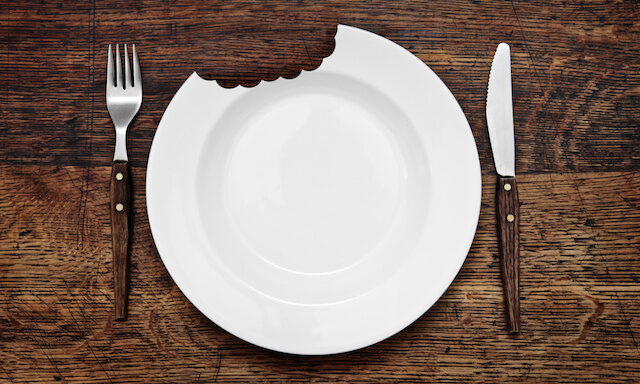By Madeleine Ortiz
Anyone who has ever been on a diet has probably experienced the moment when the weight loss begins to slow, but hunger really increases. The scale was dropping and everything was feeling good, but then, even though our diet hasn’t changed, our weight plateaus and the constant hunger feels impossible to resist. Is it our imagination or just not enough willpower?
The answer, according to Dr. Shahebina Walji, medical director of Calgary Weight Management Centre, is actually neither one. “The brain,” she says, “is the control center for our appetite, and what’s making us hungrier is not the scale or our willpower – it’s our hormones.”
Our bodies produce many hormones, and a handful of these hormones can have a direct impact on our weight. “The body likes to stay the same” Dr. Walji explains, “and it’s very good at detecting change, especially when it comes to weight loss.” That’s why, when we start losing weight, our body (and our hormones) begin to react. Two hormones in particular, ghrelin and leptin, play major roles in this process.
Ghrelin:
Ghrelin is our body’s only hunger hormone. Ghrelin is produced in the stomach and is normally released when your stomach is empty. It is the signal to your brain that your body is hungry, and then your brain triggers your desire to eat. When you begin to lose weight, the ghrelin circulating in your system begins to increase, making you feel hungrier more often.
Leptin:
Leptin is one of many fullness hormones in your body, but it’s the one that gets the spotlight when it comes to dieting and weight regain. That’s because leptin is produced in fat tissue. The more fat tissue you have, the more leptin you will have – causing you to feel fuller, faster. As you begin to lose weight, you also lose fat tissue. As fat tissue decreases, so does the amount of leptin in your body. Having less leptin means you feel less full (even if you’re eating the same).
You’d think with the recognition that our bodies are working against our weight loss efforts, Dr. Walji’s patients would feel hopeless. The opposite is true, she says. They are more relieved than they are discouraged; for so long they’ve assumed the plateaus, weight regain and excessive hunger has been their fault. But our weight is biology, she explains, and not much can be done to change our biology. Once you start accepting this fact, you feel less shame, less guilt and, in Dr. Walji’s experience, way more open to reaching out for help from a healthcare professional.
A medical expert can’t change what ghrelin and leptin do inside your body, but they can help you create a plan for long-term, sustainable change, and they can prescribe medications that can help mitigate many of these changes. Whether it’s lifestyle changes, Cognitive Behavioral Therapy (CBT), medications, surgery or some combination of the four, there are ways to lose weight and keep it off for good, despite our bodies’ efforts to make that difficult. Finding a plan that works starts with seeing a doctor who knows what you’re up against and will help you succeed anyway. Find one near you here…
Dr. Walji is a physician who specializes in weight management and she’s listed in our physician locator. You can use it to find Dr. Walji or a physician who focuses on helping people reach a healthier weight – click to check it out.
Get a weekly text to help you stay on track with your health goals! Click here to sign up.
This article was sponsored by Novo Nordisk Canada. All content is created independently by My Weight – What To Know with no influence from Novo Nordisk.

